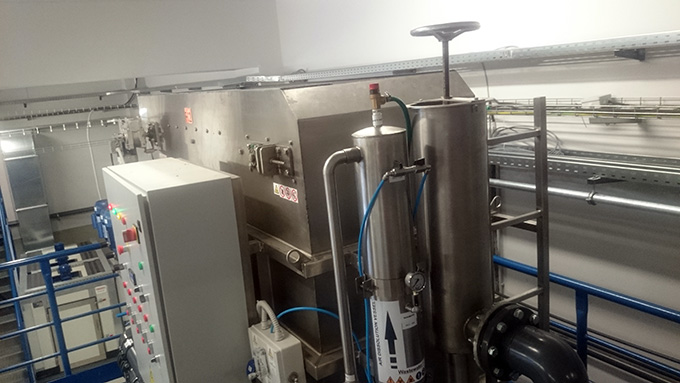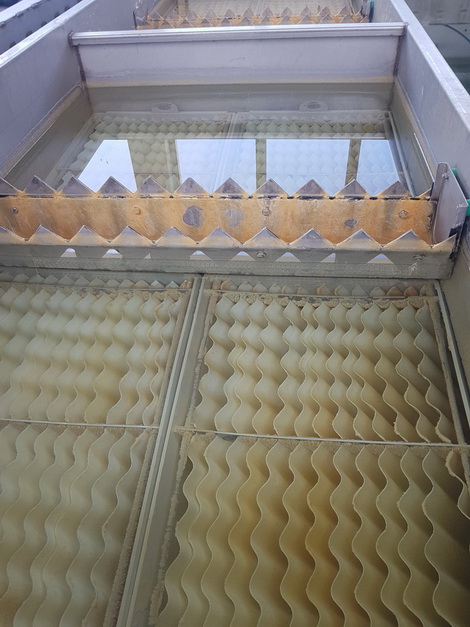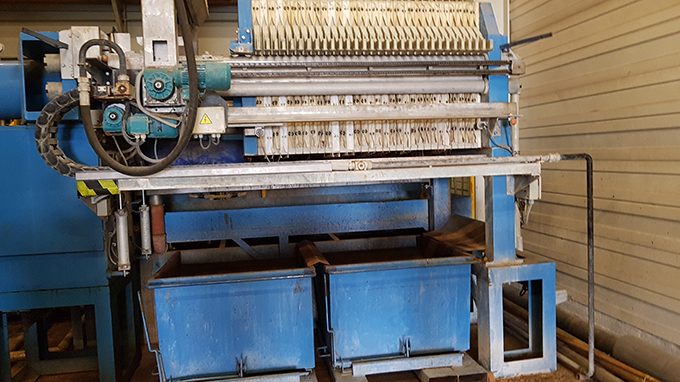Environmental protection is the main premise of our business. We believe that in this area it is necessary to respect the principle of expertise to the greatest extent possible.
The most important areas for which we provide design and consulting services in the field of environmental protection are:
- all types of recycling and collection of secondary raw materials
- metal industry
- galvanization
- mines
- rubber production
- wastewater treatment
- petrol stations
- mobile phone base stations
- farms
- slaughterhouses
- dairies
- food and beverage production
- wood processing
- chemical industry
- energy etc.

Preparation of the Study on Environmental Impact Assessment of the Project (including all phases)
- Completion of the Requirement for need to prepare the Study
- Completion of the Requirement for determining the scope and content of the Study
- Participation in the public discussion of the Study on the basis of consultations with the competent authorities, and with the participation of the public
- The study is prepared in accordance with current legislation, rules of the profession, based on consultations with competent authorities, and with public participation
Reference list of the Environmental Impact Assessment Study, see...
Development of Waste Management Plan

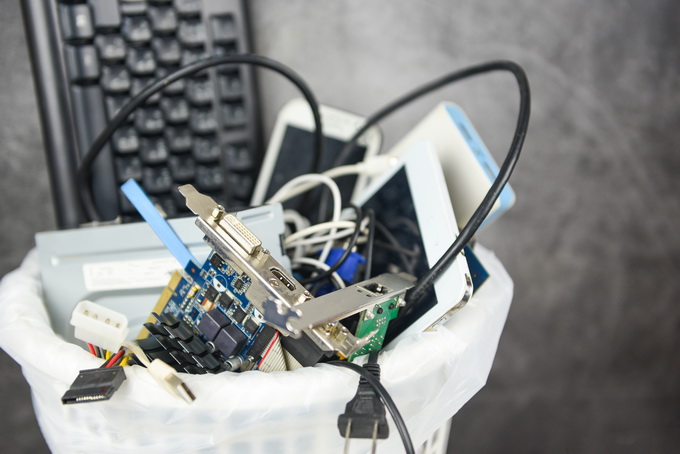
Our Waste Management Plans are characterized by:
- Defining the place of waste generation in accordance with the technology of the production process and the principles of environmental protection
- We define the method of collection, treatment and storage in accordance with the best available techniques
- We try to find ways to treat and reduce the amount of waste generated by the waste generator
- We propose technologies for the transformation of hazardous waste into non - hazardous at the generator itself
Development of Work Waste Management Plan:
- The work plan defines all chapters and all necessary documentation prescribed by positive legal regulations of the RS
- Within the work plan we define in detail the index numbers of waste collected, stored waste, treated waste and waste generated in the process treatment.
- We define the amount of waste that can be stored within the available space using standards from internationally recognized methodological documents.
- Providing permits for the collection, transport, storage and treatment of non-hazardous and hazardous waste
Reference list in the field of waste management and recycling, see....
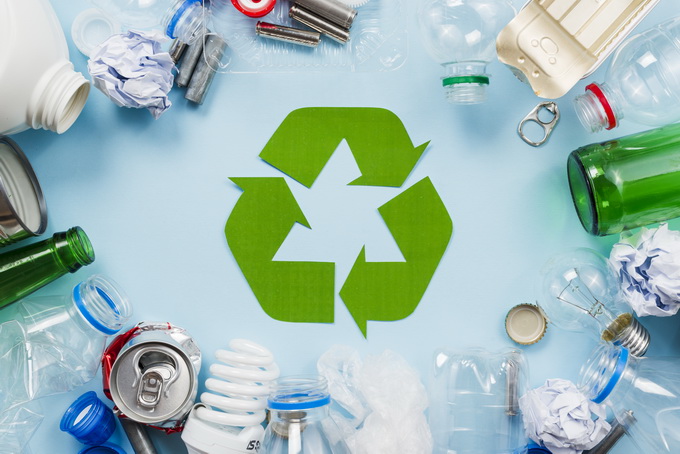

Accident Protection Plan
The experience we have in the development of technology projects for a large number of industrial processes allows us to develop each accident protection plan respecting the technological processes and technological procedures applied in production, the methodology prescribed by law, the latest achievements and recommendations of relevant organizations dealing with this activity.
Accident Prevention Policy
As an Accident Protection Plan and Accident Prevention Policy, we develop it as a document that is constantly updated and changed. In very effective and understandable way, we present to the operator the plan we have developed in order to be understood and accepted by those who need to implement it.
Provision of IPPC permit
(Law on Integrated Prevention and Control of Environmental Pollution)
Site selection for certain activities
Provision of Water Opinion, Water Conditions and Water Permit
Advantages:
- We always find optimal solutions that save the investor time and money
- We guarantee quality. We have a huge experience behind us, we have done over 700 projects in this area
- We perform all projects and services in a very short time
Production of plants and equipment for environmental protection
- systems for wastewater treatment
- systems for purification of polluted air
- separators of fats, oils and petroleum products
- containers for receiving hazardous waste of various sizes and shapes
- eco-tanks
- eco-containers, etc.
News
DAF DEVICES
DAF (Dissolved Air Flotation) device is used for separation of dispersed and suspended particles from wastewater. Flotation is a mechanical separation proccess based on making supersaturated air solution in wastewater, meaning that micro bubbles make contact and connect with suspended substances and enable them to reach the surface and float.The air is being dispersed from the bottom of the pool, t it “collects” particles on it’s way up and pushes them to the surface. Coagulant neutralizes the electrostatic load of colloid particles and enables their agglomeration into floccules. Polyelectrolyte connects the neutralized particles into even bigger floccules. Piping saturator has a unique construction and enables air bubbles with dimensions 10-70 micrometers, what provides an extraordinary efficiency. AREAS OF APPLICATION AND MAIN APPLICATIONS Milk industry, ice cream production, juice production, alcoholic beverages production, breweries, fish and meat processing, fruit and vegetables processing, drinking water, etc. Plastic recycling, chemical industry, oil and gas, textile industry, leather industry, laundry services, package washing etc. Advantages of our DAF Systems: - Very high level of reduction of pollution parameters Suspended substances Reduction rate from 90-99% Oils and fats Reduction rate trom 90-99% BPK5 Reduction rate from 70=80% HPK Reducstion rate from 70-80% - Comprehensive and efficient solution which provides high stability and efficient removing of dirt. Reliable method for refining of technological wastewater. - Simple installations provide compact equipment set and saves space. - Major savings because the system construction and technological parameters ensure small consumption of energy, air and chemicals. - Very stable functioning of coagulation, neutralization and flocculation systems. - Law level of turbulences, there is no re-retraction of floating sediments. - We have available a developed digital services package which provides follow-up and optimization of the DAF system long-distance working and remote controllie of thesystems. - Instead of classical lamellas, we use special “U” profiles which provide: Separated flowi of wastewater and clean water Equal distribution of wastewater flow and sectors load, decreasing the turbulence There is no obstruction of flow of flotants Flow leaders secure less consumption of polymers DAF is a device made of stainless steel We can deliver complete systems or rebuild and upgrade existing DAF devices.
Read more
TECHNOLOGICAL TREATMENT PLANT FROM BATTERY PRODUCTION AND RECYCLING WASTEWATER
Type of wastewater: technological wastewater from battery production and recycling Capacity: 700 m³/day, 29 m³/h Table 1: Types of wastewaters and damaging and dangerous substances generated during the production process Types of wastewater Origin Existing hazardous and dangerous matters Alkaline rinsing water Workspace and streets cleaning Lead and dust Sour rinsing water with high concentration Paste mixer and shepherd machine washing Pb, PbO2, PbSO4 Neutral concentrates Wet Ventures - scrubbers Pb, Sn, Sb, hydroxides Water from battery formulation Charging battery with acid Sulfuric acid Water from battery recycling Cutting and emptying of battery Sulfuric acid, Pb, PbO2, PbSO4 Outgoing water quality Purified wastewater from the treatment plant should satisfy the following limit values for discharing into the land waters (in this case a small river). Limit values are extremely low for some hard metals, which are contained in these wastewaters, such as: Cadmium – 0,1 mg/l Lead – 0,5 mg/l Iron – 2 mg/l Sulfates – 250 mg/l Suspended substances – 35 mg/l BPK5 – 25 mg/l HPK – 125 mg/l, etc. The investor’s request was to deliver a technological solution – Technology for wastewater processing through the project: machine, electro and measuring regulating equipment, electro-commanding cabinet with PLC and software, launching and a guarantee that the required parameters will be inside the limit values. Plant working regime: Continually (moze I : non-stop), 24h/7 daysOV generated during he production process are being treated trough three lines: Water line Dirt line Preparation and chemicals dosing line These technologies are being established on the water line: Egalisation Neutralisation Neutralisation II and removing of sulfates Coagulation Flocculation Sedimentation Clarification of sedimented water Final control These technologies are being established on the preparation and chemicals dosing line: Preparing a dosing solution Dosing the solution The system is completely automatized, with support of electro- commanding cabinet with SIEMENS PLC, software and measuring regulation equipment. After the equipment is delivered and the system is launched, chemical analysis of the purified OV have been done in an accredited lab. Those analysis showed that all parameters were inside the limit values.
Read more
MEMBRANE FILTER PRESSES
Filter plates at Mebrane filter press are equipped with membranes that enable additional "squeezing" -dehydration of the filter cake. Increasing the filling pressure ensures precompression and drainage of the filter cake in the chamber. When the filling pressure reaches a predetermined value (approximately 6-8 bar), the filter cake is additionally exposed to the membrane pressure, and additionally "squeezed". Elastic membranes, which can be made of polypropylene (PP) and synthetic rubber (NBR, EPDM), use compressed air to press the filter cake over the entire surface of the chambers. Additional compression thus expels free water through the filter cloth. ADVANTAGES OF MEMBRANE FILTER PRESSES: • More economical filtration due to high degree of drainage and shorter cycle time Maximum flexibility for expansion and automation possibilities Extended pump life in the case of abrasive media, due to low supply pressure CASE STUDY: Delivery of membrane filter press with the dimensions of plates 1000x 1000 mm, 36 plates, volume 770 liters, for filtering the solution of lead "paste" in the process of battery recycling. Investor "TAB MAK". The press is equipped with: membrane plates with EPDM membrane, system for automatic opening of plates, "Squezing" system for additional dehydration of filter cakes, "drip tray" system. Degree of dehydration of filter cakes: 80-90% dry matter..
Read more

